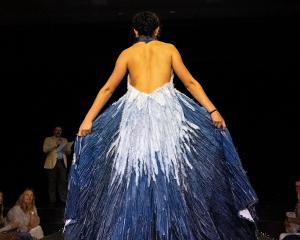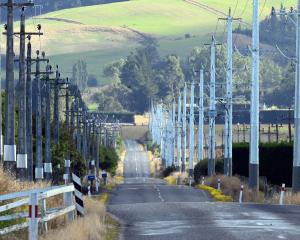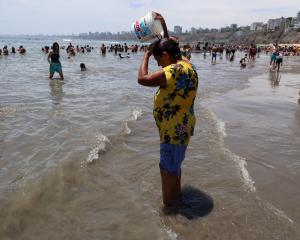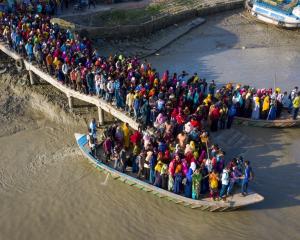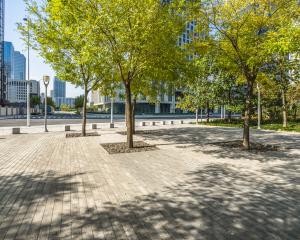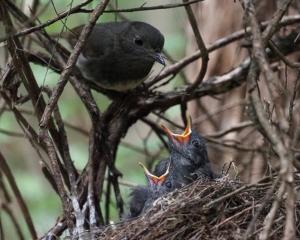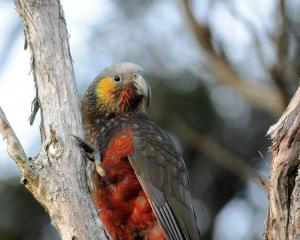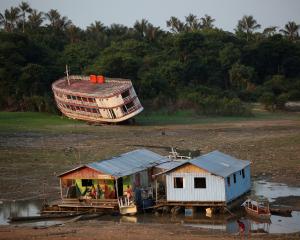In many ways 2019 has been the year of the climate activist. From the Greta Thunberg-inspired School Strikes 4 Climate, to Extinction Rebellion’s protests around the globe and the activities of other groups closer to home.
So what’s it all about? We asked some local climate activists three questions:
1. What does the challenge of climate change mean to you?
2. Why did you get involved with your group?
3. What are your hopes for 2020?
 Cameron Young
Cameron Young - PLIGHTS OF THE PACIFIC
Cameron Young
Cameron Young - PLIGHTS OF THE PACIFIC

1. We, indigenous Pasifika, are people of the land. We respect the enua, and she respects us. We nurture her, and she nurtures us. Our land is our identity.
My ipukarea, my islands, are what connect me to my tupuna, and are what will connect me to my descendants. I am fighting for the preservation of 100 different languages, 100 different tropical fruits, flowers, shells and dances.
I am fighting so that my culture is not lost to moana.
2. The University of Otago is home to so many passionate indigenous Pacific people who are driven to fighting climate change. Plights of the Pacific is a student-led initiative that has brought together dozens of individuals, so that the mass of voices has maximum impact.
What is so unique about this group, led by Otessa Tuisala, is the diversity of people involved. We have members from all over the Pacific — from Vanuatu to West Papua, Samoa to the Solomons, and all between. It is important our families and their stories are represented authentically.
3. The influence of Plights of the Pacific is only growing, as is the passion and creativity of Otago’s rangitahi. I know our group of students will be tackling climate issues head-on in the coming year, as well as other challenges affecting Pasifika youth.
More than anything, I hope our older generations take more action. This is not a youth issue, or a Pacific issue, this is a human issue! And it will take all humans to avert it.
Climate change is Pacific genocide. Help us stop this crisis!
 Danika Hotham
Dankia Hotham - EXTINCTION REBELLION
Danika Hotham
Dankia Hotham - EXTINCTION REBELLION

1. Everything. People today are often seen as separate from nature, but climate breakdown reminds us of our place within nature. It threatens our basic biological needs for food and water, which wealth and technology cannot replace. Climate breakdown has already taken lives and livelihoods, largely from those who have contributed the least to the problem, which centres justice in this challenge. From here it will affect more and more people and how we cope will ultimately determine the future of our entire species.
2. I see the fundamental cause of the climate and ecological emergencies being hierarchical worldviews and supremacy. This has fostered colonisation and capitalism, and allowed humans to separate different groups of people, and to separate ourselves as a species from nature. This has led to the exploitation of people, other animals and nature. In Extinction Rebellion, I saw a group which rejected hierarchies, and aimed to disrupt the current system and provide space for different ways of organising, ultimately challenging the root cause of this problem.
3. For 2020 I hope to see Extinction Rebellion openly acknowledge and address criticisms to learn and move forward inclusively and fairly. I hope to see genuine decolonisation and hope to foster that here in our local group. I hope to dedicate most of my time to activism with Extinction Rebellion and other groups. I hope to see regenerative and community-based growth in the movement locally, nationally and globally. Finally, I hope to see massive disruption to the current system, and real change.
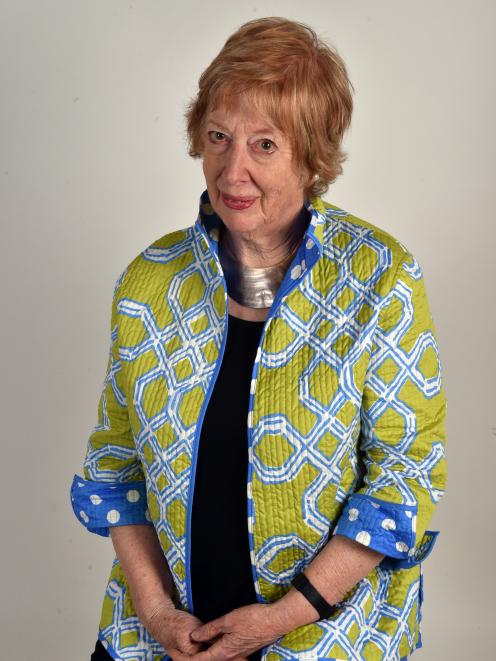 Jocelyn Harris
Jocelyn Harris - WISE RESPONSE
Jocelyn Harris
Jocelyn Harris - WISE RESPONSE

1. Frankly, I'm terrified by the threat posed by climate change to everything and everyone from fires, floods, droughts, storms, coastal erosion, ice-melt sea-level rise, acidified oceans, polluted water, contaminated soil, lost arable land, reduced food supply, carbon emissions, collapse of island nations, species extinction, mass migration, and consequent social unrest. I believe that the only way to tackle these problems is by acting together locally as well as globally. Everything helps. In 2020, especially, our votes will make a real difference.
2. Though no scientist, I record the minutes for the high-powered committee of Wise Response. In 2006, councillor Leah MacBey horrified me by spelling out just what climate change would mean if left unchecked. When John Cocks and I served as co-chairs of Sustainable Dunedin City, members made well-informed submissions to local and national government, wrote op-eds, sent letters to the editor, and talked to every willing group. Now I largely leave it to the experts to do the heavy lifting.
3. The non-partisan, cross-party consensus on the Zero Carbon Act was thrilling. But just as climate change is moving faster than foreseen, New Zealand needs to act much more urgently. I look forward to more climate marches (thank you School Strike 4 Climate!), more public transport, more electricity replacing fossil fuels, more wind and solar power, more native tree-planting, more self-sufficiency in food, more research on agricultural emissions, more alternatives to plastic, more risk assessment, and more climate-change-challenging legislation. Work to be done!
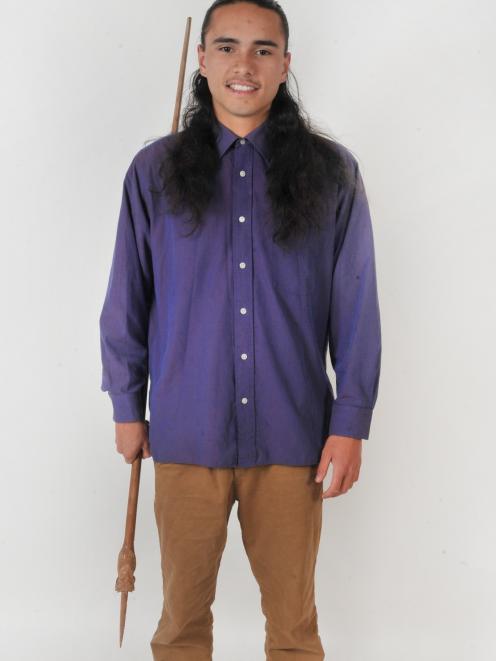 Poutama Crossman-Nixon
Poutama Crossman-Nixon - NGATI TUWHARETOA, TE ATI HAUNUI-A-PAPARANGI, SCOTTISH, IRISH, WELSH, POLISH
Poutama Crossman-Nixon
Poutama Crossman-Nixon - NGATI TUWHARETOA, TE ATI HAUNUI-A-PAPARANGI, SCOTTISH, IRISH, WELSH, POLISH

1. It means opportunity. Let me explain, if we look at crisis in our lives it has always been a chance for change, a chance for growth. The very determining factor is our response to the crisis, i.e., responsibility to the situation. So for me this crisis has tremendous possibility for unification, transformation and healing. So what we need to do is come together and have that conversation about what our responsibilities are to this global crisis we are facing. So let's have that conversation.
2. Here's a whakatauki that may help answer this question. "Mehemea ka moemoea ahau, ko ahau noiho. Mehemea ka moemoea tatau, ka taea e tatau." "If I dream alone, it is me only. If we dream together, we may succeed." This has been a huge guiding factor for me to the realisation that we need to work together to succeed.
3. My hopes are that we can finally learn to get along with one another. My hopes are that we can start to learn from one another, start to help one another. My hopes are that we can learn to work with and as a part of te ao Maori. These are the seeds that we sow, these are the fruits that we will hopefully reap. Nga mihi.
 Polly Mason
Polly Mason - SENIORS CLIMATE ACTION NETWORK
Polly Mason
Polly Mason - SENIORS CLIMATE ACTION NETWORK

1. Globally, locally and personally we have work to do if future generations are to have a habitable planet. Its effects will not respect political boundaries or ideologies, morals or ethics. There is urgency to reduce greenhouse gas emissions to reach carbon zero, plan use of the planet’s resources and to regenerate our fragile depleted world. Personally, it means a lapsed passport, active, public or shared transport, considered purchasing, renewing skills, repairing, community involvement and caring for hearts and minds, including mine.
2. Day-time meetings and the bike or bus accessible venue work well. Scan is a supportive encouraging group of people who share access to varied life experience, knowledge and skills. Collaborative actions result. 2015 saw an arts-inspired "Love the Earth" celebration. Last year 50-plus groups with similar agendas attended our Future Living Hui. This year there have been film showings, workshops, letters to the editor, protest and rally participation, research sharing, information distribution, submission writing, contributions to Dunedin City Council public forums, and collaboration with other groups.
3. Climate change is one of many issues facing future lives. The groundswell of voices grows rapidly. I hope for increasingly inclusive conversation about our ecology: water, air, land use, soil regeneration, agriculture, biodiversity, population, food safety, social inequality, pollution, economics, values, democracy, citizenship, spirituality. Research of ecological effects, mitigation options, adaptation, and inclusive communication while maintaining hope seem crucial. I hope we continue to share stories and ideas for useful solutions.
I particularly hope for "we will" not "they aren't".
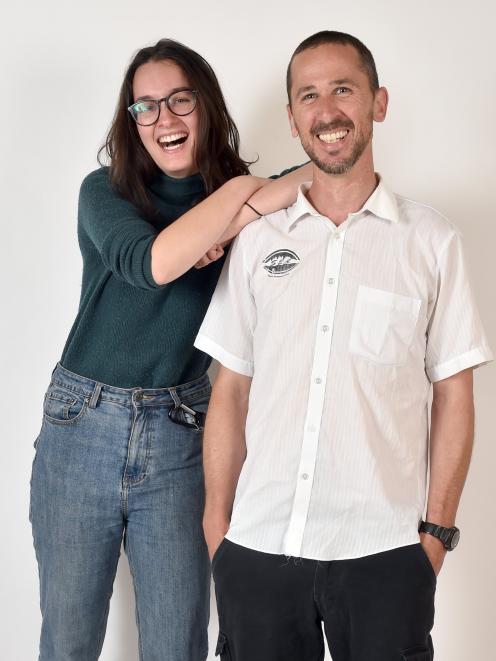 Grace Cowley and Jonathon Visser
Grace Cowley and Jonathon Visser - STUDENTS FOR ENVIRONMENTAL ACTION
Grace Cowley and Jonathon Visser
Grace Cowley and Jonathon Visser - STUDENTS FOR ENVIRONMENTAL ACTION

1. Climate change involves so many negative feedbacks cascading out of control. We are pushing systems that have been in flux for thousands of years to the brink, changing life on earth faster than life can adapt to it. We have moved past the point of identifying what the problem is, our challenge is to act; use your car less, fly less, eat less meat. The challenge is whether we can make these changes in time and allow everyone to transition to live in a way that’s beneficial for the planet, listening to indigenous wisdom and addressing other environmental issues as we do so. This is an issue of equality and democracy and an opportunity to unite on a planetary scale around a common cause.
2.There are passionate people involved in SEA from all sorts of fields and disciplines, bringing those ideas together. One thing we hit on in our meetings a lot, is the need for a culture of sustainability to bring people together. Just doing something brings a sense of optimism. The group also provides an opportunity to put pressure on the university to do the right things.
3. The reform of the Emissions Trading Scheme needs to demonstrate decisive government leadership in terms of encouraging businesses and individuals to reduce their carbon footprints. We also need to see more youth leadership in government, from the likes of Chloe Swarbrick and Sophie Handford, people who are personally invested in the future. Greater unity at the community level will be important, so there is more pressure from the bottom up.
Comments
The Neo-Marxist overtones throughout these activists' commentary are rather disturbing. Is the spectre of climate change being used as a Trojan horse for collectivist revolution?
Nobody will believe such ideological blah on your part.
I can't see a name for you who sees reds under the beds- so I will just have to make one up.


